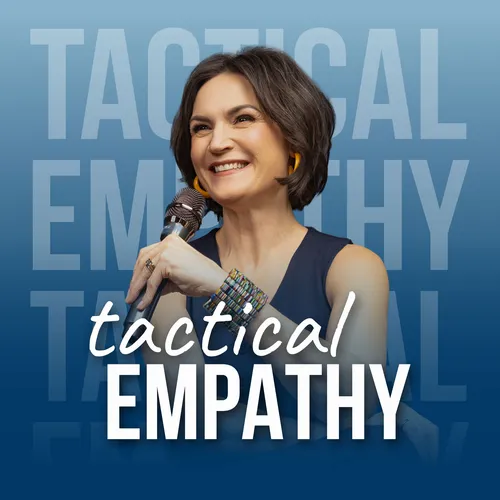Grief Series, Part 3: Showing Up with Compassion with Christine & Kristen
- Author
- Erin Thorp
- Published
- Wed 30 Jul 2025
- Episode Link
- https://redcircle.com/shows/56d76124-3bc3-4889-b4bd-2dcca919bde9/episodes/e4ac6bad-b4b3-4adb-993a-3dd97da95a74
Part 3 of the 3-part grief series concludes with Erin, Christine and Kristen discussing the multifaceted nature of grief, emphasizing its individual experience and the concept of disenfranchised grief. They discuss the impact of loss on identity and roles, the challenges of navigating grief in personal and professional life, and the societal pressures surrounding grief timelines. They highlight the importance of effective communication, remembrance, and normalizing conversations about grief. The discussion also touches on the difficulties of preparing for grief and the various resources available to support individuals in their grieving process. Ultimately, the speakers convey that grief and joy can coexist, and it is essential to honor one's unique journey through loss.
Today on Tactical Empathy:
- Grief is an individual experience, and there is no one-size-fits-all approach.
- Disenfranchised grief refers to losses that are not socially recognized, making it harder for individuals to grieve.
- Loss of identity and roles can be as significant as losing a loved one.
- Grief does not follow a timeline; it is a personal journey that varies for everyone.
- The second year of grief can often be more challenging than the first due to a lack of support.
- Communicating support effectively is crucial; avoid common phrases like 'I'm sorry' and instead acknowledge the pain.
- Remembering and sharing stories about the deceased can help keep their memory alive.
- Normalizing conversations about grief can help individuals feel less isolated in their experiences.
- Preparing for grief is difficult, but having open conversations about loss can help.
- There are many resources available, including books, podcasts, and support groups, to help navigate grief.
Connect with Christine:
Connect with Kristen:
- Website: www.kris10fitness.ca
- Facebook: kris10fitness
- Instagram: kris10fitness.ca
Connect with Erin:
- Instagram: @elthorp
- Linkedin: https://www.linkedin.com/in/erin-thorp-speaker/
- Website: www.erinthorp.ca
- Inside Out Empathy Free Chapter: https://www.insideoutempathy.com/
This show was produced by ELF Solutions Inc.
